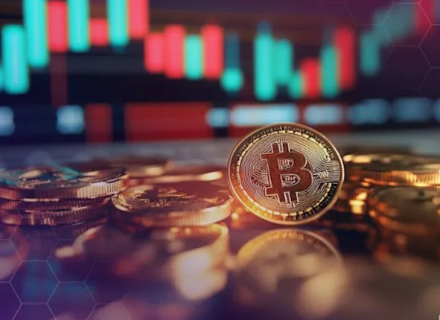South Korean Banks Race to Launch Digital Asset Services Ahead of Stricter Crypto Regulations
South Korean banks are rapidly developing their crypto business strategies in anticipation of a new regulatory era. With the upcoming enforcement of the Virtual Asset User Protection Act in July 2024, traditional financial institutions are eager to capture opportunities in digital assets even as they brace for increased compliance demands.
South Korean banks are rapidly developing their crypto business strategies in anticipation of a new regulatory era. With the upcoming enforcement of the Virtual Asset User Protection Act in July 2024, traditional financial institutions are eager to capture opportunities in digital assets even as they brace for increased compliance demands.
Major banks such as KB Kookmin Bank, Shinhan Bank, and Hana Bank are reportedly reviewing partnerships with domestic and global crypto exchanges. These institutions aim to broaden their roles beyond fiat deposit accounts to include digital asset custody, trading platforms, and blockchain research collaborations. The move comes after years of cautious observation, with banks initially wary of regulatory risks and the volatility tied to cryptocurrencies.
Bank executives say the new law’s clear rules reduce uncertainty, making it easier to commit resources and develop secure crypto offerings. However, they will face rigorous standards on anti-money laundering, customer protection, and transaction transparency. Some banks are already piloting blockchain-powered services, while others are considering direct investments in crypto-related technologies.
Industry experts note that South Korea’s tightening approach reflects broader trends in Asia, where centralised oversight is seen as key to building trust in digital assets. The banking sector’s shift is likely to accelerate mainstream adoption of cryptocurrencies and fuel competition with existing players in the market.
Recent precedents in neighbouring regions, such as Singapore’s embrace of robust licensing frameworks for crypto platforms, suggest South Korea’s banks could play a pivotal role in institutionalizing crypto finance. Analysts expect local banks to launch new crypto products and platforms later this year, following further guidance from the Financial Services Commission and after securing partnerships with licensed exchanges.
As banks recalibrate their business models, they are acutely aware that regulatory compliance will remain a top concern. Successful integration of crypto services could unlock new revenue streams and enhance customer offerings, setting the stage for a more mature and secure digital asset ecosystem in South Korea.
Disclaimer: The content of this article solely reflects the author's opinion and does not represent the platform in any capacity. This article is not intended to serve as a reference for making investment decisions.
You may also like
Mars Morning News | SEC Expected to Issue "Innovation Exemptions" for the Crypto Industry in "About a Month"
The SEC is expected to issue an innovation exemption for the crypto industry. The UK "Digital Assets and Other Property Act" has come into effect. BlackRock's CEO revealed that sovereign wealth funds are buying bitcoin. Bank of America recommends clients allocate to crypto assets. Bitcoin selling pressure is nearing its end. Summary generated by Mars AI. The accuracy and completeness of this summary are still being improved as the Mars AI model continues to iterate.

a16z: Inefficient governance and dormant tokens pose a more severe quantum threat to BTC.
Deep Reflection: I Wasted Eight Years in the Crypto Industry
In recent days, an article titled "I Wasted Eight Years in the Crypto Industry" has garnered over a million views and widespread resonance on Twitter, directly addressing the gambling nature and nihilistic tendencies of cryptocurrencies. ChainCatcher now translates this article for further discussion and exchange.

